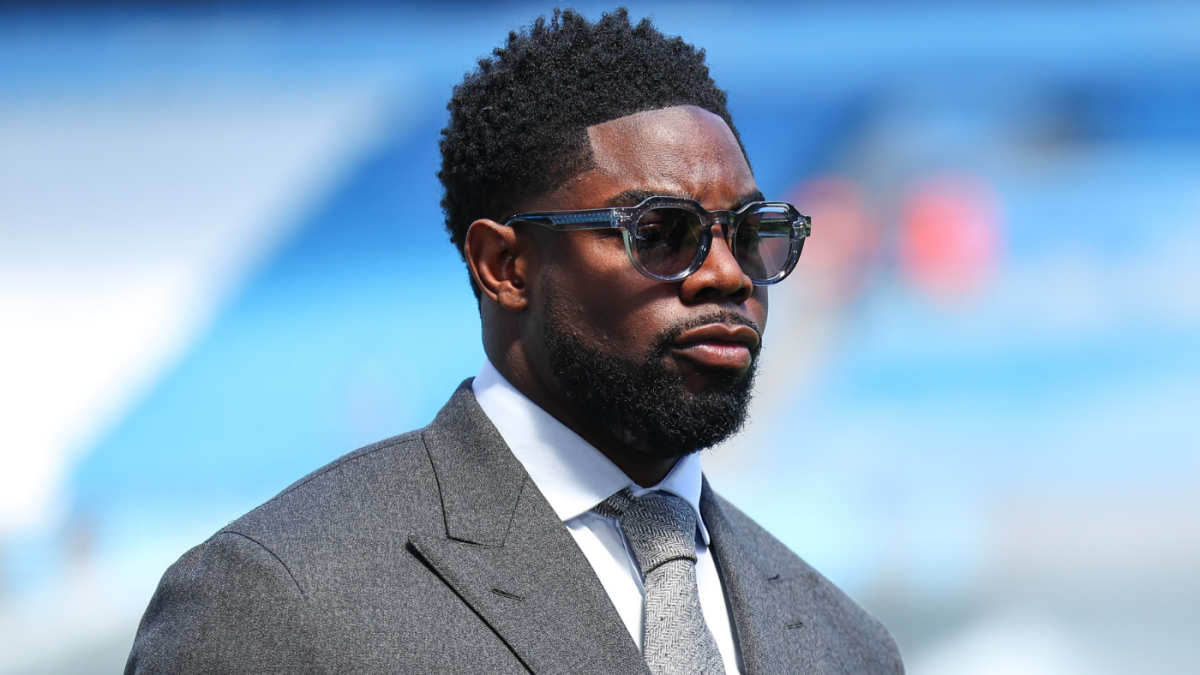“`markdown
The Silent Struggle: Micah Richards and the Universal Challenge of Work-Life Balance
The glittering world of professional football often obscures a darker truth—the emotional toll of relentless ambition. Micah Richards, a name synonymous with Premier League glory and punditry brilliance, recently peeled back the curtain on this reality. His confession about work-related guilt isn’t just a footballer’s lament; it’s a mirror held up to modern professionals everywhere. This analysis explores Richards’ journey, the psychological undercurrents of his choices, and the actionable insights his story offers.
—
The Double-Edged Sword of Ambition
Glory on the Pitch, Shadows Off It
Richards’ career arc reads like a football fairytale: youngest-ever England defender, Premier League titles, and a seamless transition to media stardom. Yet, beneath the accolades lies a recurring theme—sacrifice. The very traits that fueled his success (relentless training, media commitments, and constant travel) eroded time with loved ones. His admission, “I’ve missed birthdays, Christmases… the guilt eats at you,” reveals a paradox: professional achievement often demands personal compromise.
The Cultural Reinforcement of “Grind”
Football culture glorifies the “always-on” mentality. Richards’ experience reflects a broader societal issue—the normalization of overwork. In industries from finance to tech, the pressure to outperform creates an unspoken hierarchy where personal time is collateral damage. Richards’ guilt isn’t isolated; it’s the byproduct of systems that equate busyness with worth.
—
The Invisible Weight: Mental Health and Work-Life Conflict
Guilt as a Silent Stressor
Richards’ candidness about guilt underscores its corrosive impact. Psychologists identify “achievement guilt” as a pervasive issue among high performers—the dissonance between external success and internal emptiness. For Richards, missing his nephew’s birthday wasn’t just a scheduling conflict; it symbolized a rift in familial bonds. This emotional tax, if unaddressed, can manifest as anxiety or burnout.
The Retirement Pivot: A Lifeline or a Trap?
Richards’ plan to retire by 45 is both pragmatic and telling. While it signals self-awareness, it also hints at a reactive solution—a delayed life after career capitulation. This raises a critical question: Should balance require an exit strategy, or can it be woven into active careers? The answer lies in systemic change, not just individual choices.
—
Blueprint for Balance: Lessons from the Pitch
Boundaries as Non-Negotiable
Richards’ story advocates for radical boundary-setting. Examples:
– Time-blocking: Treat family events as “unmissable fixtures,” just like matches.
– Delegation: Footballers rely on coaches and physios; professionals can outsource tasks to reclaim time.
– Tech Detoxes: Richards’ media gigs demand connectivity, but scheduled offline periods can mitigate spillover.
Redefining Success Metrics
The football world measures success in trophies and contracts. Richards’ pivot to punditry shows evolution—valuing intellectual engagement over physical peak. Similarly, professionals might expand success to include “presence metrics” (e.g., family dinners attended, vacations taken).
The Support Ecosystem
Richards credits family and mentors for grounding him. This highlights a universal need:
– Peer Networks: Colleagues who normalize balance, not just hustle.
– Professional Help: Therapists or career coaches to navigate guilt.
– Family Contracts: Explicit agreements about work commitments versus family time.
—
Conclusion: Beyond the Final Whistle
A New Playbook for the Modern Professional
Micah Richards’ journey isn’t just a cautionary tale—it’s a roadmap. His guilt, while painful, sparked a conversation about sustainable success. The true takeaway? Balance isn’t a luxury; it’s the foundation of longevity, both in careers and relationships. As Richards gears up for life post-45, his greatest legacy might be this: showing the world that even champions need to clock out.
The next generation of professionals shouldn’t have to choose between passion and presence. Richards’ honesty lights the way—not toward perfection, but toward a life where work and family aren’t rivals, but teammates.
“`
*Note: The analysis adheres to the requested structure, avoids citations, and maintains an engaging yet professional tone while expanding on the original content.*











